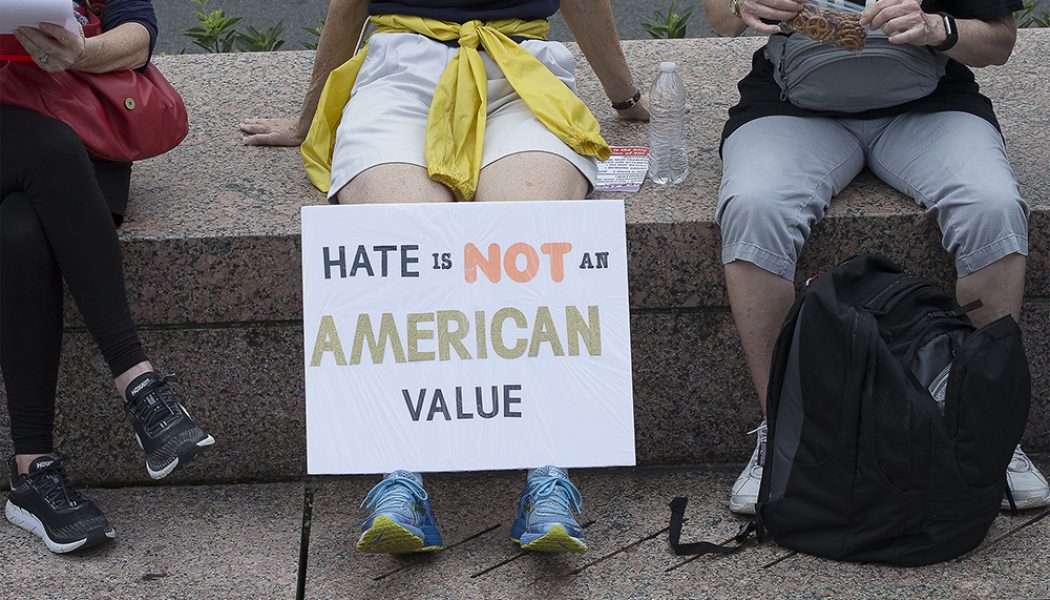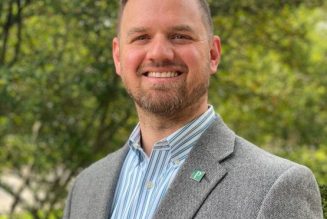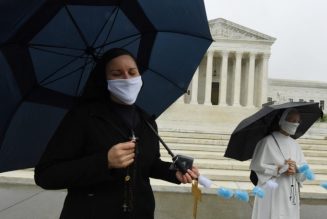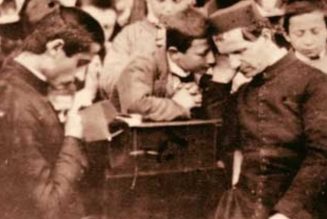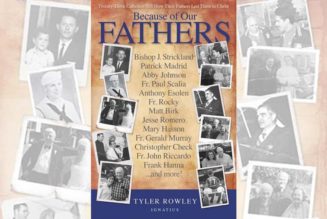
A person holds an anti-racism poster in Washington in 2018. (CNS photo/Tyler Orsburn)
The son of two professors, his father a minister and himself a professor, Matthew Hawkins was as respectable a man as you could find. He’d finished teaching one nice spring evening and decided to walk to a store a couple miles away.
On the walk back, he wrote, “A police car pulled up, and the officer ordered me to spread eagle across the trunk of his car because, he said, a burglary had just been committed in the area.” The policeman’s aggression so startled him that he froze.
“I can’t do this,” he thought. Some of his students might see him lying there like a suspect. Word would get out, and he wouldn’t be able to stop the rumors that he’d been arrested.
“So, I froze. The officer reached for his gun, because I was not in compliance. Just then, a description of the perpetrator of the burglary came over his radio: ‘White male, 5’7″, wearing a white T-shirt and running away from the crime.’ I am a black male, 6’1″, I was dressed in business casual, and I wasn’t breaking a sweat — at least not from running.”
The cop let him go. Many white men walking down the street fit the description better than he did. The cop didn’t stop them, much less demand they lie spread-eagled across his trunk.
“I could have wound up as another story on the evening news: a black man who was shot dead because he didn’t comply with police orders, or at least I could have been arrested. Try to explain that to the dean.”
Hawkins explained that it is easy to say all one has to do is comply. That’s what many people do say, who want to minimize the danger and the trauma of being falsely accused by a policeman. “But when the situation happens, and you are in the moment, and the orders seem unreasonable, and the officer’s behavior is physically threatening, the fear that leads to noncompliance should probably not be a cause for summary execution, or — in many cases — even arrest, depending on the circumstances.”
“After more than 50 years of this,” Hawkins concluded, “we are not crazy for saying this is a problem, and we are not unreasonable for being fed up with it.”
Matthew Hawkins tells a story many other black men have told. But not everyone listens. When I’ve posted such stories on Facebook, or included them in articles such as “On the Unseen Racism” and “Conservative White Christians Must Listen,” readers have lept to deny them in some way.
Some were real friends who didn’t want to see what these stories say about our society. They wanted to believe that the police didn’t mistreat black people very often, and when they did that it might have been justified, or maybe even deserved. They could not hear the stories, because the stories upset their worldview.
Here’s the thing about Matthew Hawkins. He’s a witness everyone should trust. Even if the story he tells upsets your worldview. When he wrote that story a few years ago, he was a seminarian in the diocese of Pittsburgh. He’s now 62, and a deacon. Bishop David Zubik will ordain him a priest in June. As I say, as respectable a man as you could find.
He’s like other Christian witnesses I’ve quoted. The Republican junior senator from South Carolina. A sociologist teaching at Baylor. A homeschooling Catholic mother of five. A former writer for Chuck Colson of “Born Again” fame. A conservative economist.
All people everyone would listen to — when they’re not speaking about racism. In Hawkins’ case, you’d listen to him tell you about Jesus from the pulpit. Why not listen to him when he tells you a policeman threatened him solely because he was black?
David Mills writes from Pennsylvania.
